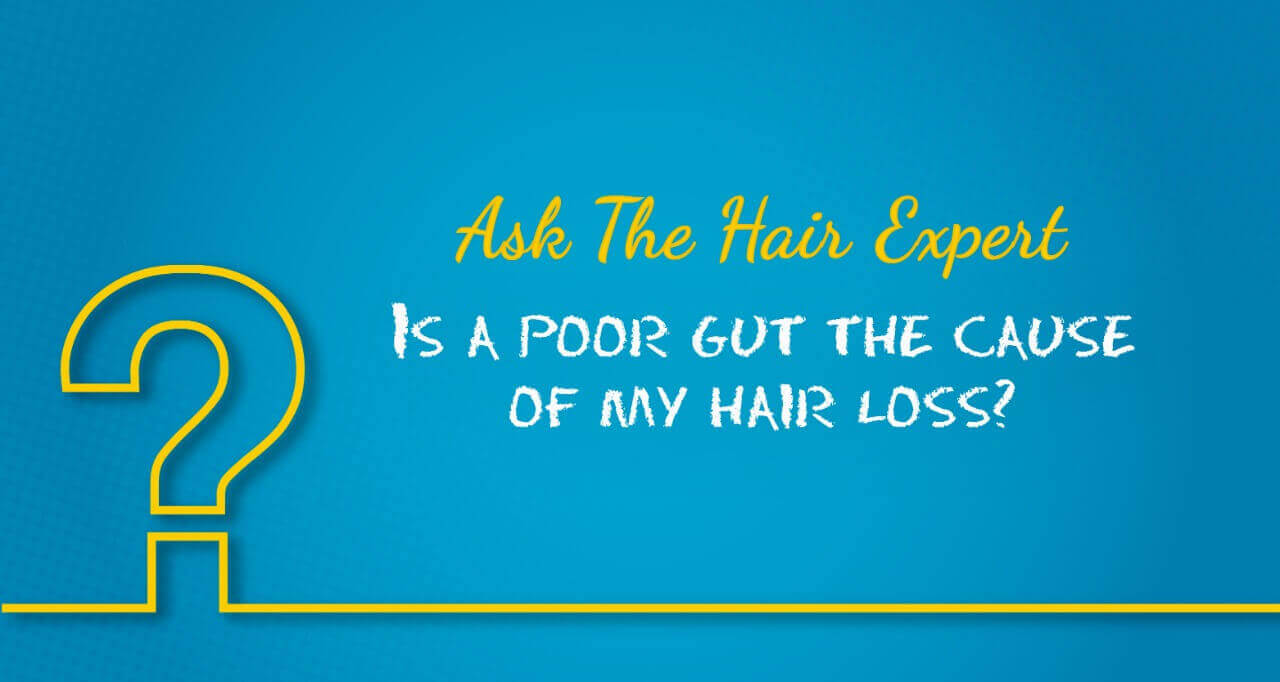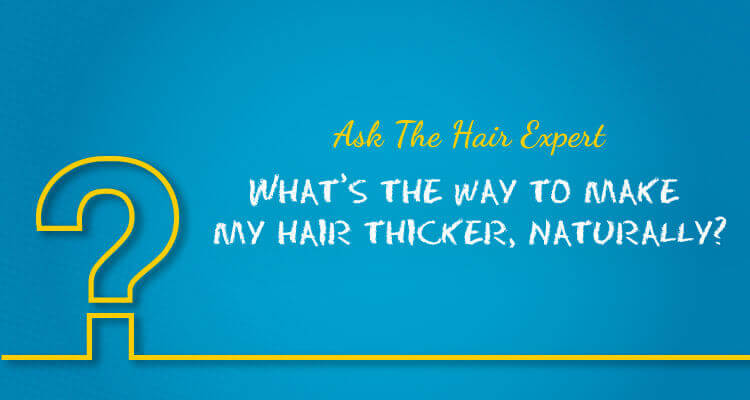A term that is so commonly used! Bad hair day!
They may be a regular feature in your life? What do you do then? Not step out? Or hide it under a scarf or cap?
Here are some questions to think about…
Why does it happen? How does it happen? How to cope with it and get through your day? How to avoid its recurrence?!
In our ‘Ask the Hair Expert’ series today, we are going to discuss this ‘often-discussed but least-actioned’ subject. We will help you understand why you may be having frequent bad hair days, how to cope with them and also help with tips on how to avoid them!
You asked: “Why do I have bad hair days? How do I deal with it? How can I avoid its frequent occurrence?”
Here’s the answer from the Hair Experts.
Good hair comes with good care.
It all boils down to how you care for your hair, what products you use on it and what hygiene steps you follow.
A trip to your Trichologist’s clinic will help you understand the right kind of hair care that your hair needs.
In spite of having fairly healthy hair, there are some days when you feel your hair could look and feel better! And this situation is very frequent and more accentuated in those whose hair care is not quite as it should be. Let’s deep dive into this.
Why you have bad hair days
Your hair care routine has a lot to do with how your hair behaves! There are also multiple external factors that affect the way our hair feels and looks – sun exposure, humidity, pollution, stress… However, if your hair’s overall health is well, if you are following a proper hair care regimen and consuming a balanced diet, your hair will be able to largely take on the stress of these external factors.
Here are some common causes for your bad hair day,
- Not oiling periodically – The primary purpose of oiling is as a prerequisite to condition the scalp and to protect hair from damage. When you don’t oil periodically as a process, your hair is prone to having bad days! Dry, brittle, frizzy hair, dandruff and breakage – some of the windows you are opening yourself to!
- Not washing your hair right – When you don’t wash your hair right, you are bound to have product residue/ build-up which is one of the main culprits of causing bad hair days. Be it shampoo, conditioners, serums, hair gels – when they stay on longer than intended, they build up on your scalp and hair, coating it and causing much damage. Another common cause is using hot water for hair wash. Hot water opens up the cuticles and drains out the natural oils, making it prone to breakage. Water should be tepid for your hair wash, to maintain the natural moisture in your hair.
- Not conditioning your hair after the wash – Many skip this important step in hair wash routine. You may oil and shampoo regularly, but when you don’t condition, your hair tends to become unmanageable. It gets dry, brittle and prone to breakage. And that’s a freeway to bad hair days.
- Changing hair products frequently – Hair products, in the first place, need to be chosen right. Each kind of hair needs a certain kind of hair product. When you use the wrong hair products, use it wrong and change it frequently, you are damaging your hair to a great extent, without intending to do so. Your hair needs time to get used to a certain shampoo or conditioner. Every time you change a product, you are exposing your hair to adverse reactions and thereby weakening it. Overall this makes it unmanageable. You miss a hair wash or you go out in the sun a tad much, and your hair ends up acting up real fast! No strength to manage the stress.
- Not getting trims periodically – When you don’t get those much-needed trims, your hair develops split ends. This is especially true for those who frequently colour hair and use styling equipment. Timely trims manage the inevitable damage caused by these actions. Trims are a must in order to avoid damage to your ends. Note, the ends of our hair are already the oldest hair and the most fragile. And when the ends are not maintained, your hair will not look the way you want it to!
- Bad diet & dehydration – We cannot emphasise more on this. If you are someone who follows our blogs, you would know how much a bad diet and dehydration can affect your hair. You are weakening your hair by this. Your hair will not have any strength to handle the strain of the various factors around you, thereby handing out bad hair days to you!
How to cope with it
So, you have woken up with bad hair…let’s give you some tips on how to deal with it for the day/week. We will then discuss what you need to do to ensure that you don’t have to face these circumstances in the future.
- Wash your hair if you can manage it! May not work if you are in a hurry! Nothing quite does the job of a good hair wash followed by conditioning, drying and styling.
- If you are out of time, dry shampoo can work wonders. Spray and leave it one for a couple of minutes. It absorbs all the excess oil and sponges out your oily hair. It also gives volume. If you don’t have dry shampoo, talcum powder can serve the same purpose!
Reach for that hand cream. A dab smoothed over hair turns frizz into shine. - Try a twist. If your hair is of shoulder-length or longer, pull it back towards the nape of your neck and twist upwards. Secure with a clip or a barrette.
- Tie it up – Top Knot, bun or braid your hair. If your hair is seeming frizzy and chaotic, one of these hairstyles would help put it to rest, and carry on with the day without hair coming in the way. Not to mention, it can look really chic. You can try side braids, loose messy braid, top knot high on the head or a chignon at the back. All of them will serve the purpose!
- Carry along extra pins when you wear a high hairstyle. If your style begins to fall, extra hairpins will add more support and hold.
- Turn a scarf into a headband. Even the flattest or fuzziest hair looks chic when swept back with a scarf. Berets, Scarfs & Wide headbands can solve your problem for the day like no other. Quick fix!
- Apply hair serum to dry hair (only). When you need to spot-hold a tendril in place or keep flyaway hair from escaping a ponytail, dab hair serum right onto the dry strands.
- Massage/ comb up for volume. If your short cut has fallen flat, use your fingers to massage the roots. This works a bit like teasing hair, hence adding lift.
- Add extra shine. Shiny hair always looks better even if the style you’re sporting isn’t what you were going for. Apply hair serum over dry hair to boost its gleam. However, use it sparingly!
- Add a parting or change your parting. A deep side parting gives hair a touch of sophistication even when it’s misbehaving. Hold in place with hairpins.
Do stay away from applying heat while your hair is unwashed and greasy. You will only make it worse!
How to avoid its recurrence
Want to avoid bad hair days? You need to ensure that your hair is healthy. And you need to ensure that you stop making some very common hair care mistakes!
Well…following the ‘why’ of bad hair days, you just need to ensure that you take care of those very pointers! Let’s lay them down for you.
- Oil. Shampoo. Condition – the three cornerstones of good hair hygiene and care. Do them right and you will fix most of your hair concerns. A regular routine, with the right oil and products, can go a long way in building strength. This will help your hair face much of the external stress it is exposed to.
- Deep condition – a must, especially if you are someone with dry hair! Deep conditioning is highly recommended for you if you have dry, brittle, dull and damaged hair. Also, if you have high porosity hair, then deep conditioning is for you. It helps seal those damaged cuticles, repair the split-ends and all that damage caused by heat-styling, frequent hair colouring, harsh weather exposure or careless brushing/hair care. Do read our blog on the importance of conditioning.
- Periodical trims – Get those trims regularly for avoiding split ends, aiding hair growth, control damage, make hair easier to manage and maintain your style well. Do read our blog to understand why you need to get those trims every now and then, and how it benefits you!
- Balanced diet & Adequate water intake – Ensuring a diet that is well balanced, with adequate Hair foods, ensures that your hair is strong from within. If strong, it can withstand the strain of styling, colouring, pollution and stress a lot better. Hydrate well with plenty of water and other fluids. Dehydration leads to dry, frizzy hair that is brittle, split ends, triggers hair loss, hampers with the hair growth cycle and leaves hair that is prone to breakage. Do read our blogs on the kind of food your hair needs and how hydration impacts hair.
- Measured use of styling equipment – We do not advocate that you never use styling equipment, but only recommend that you do so in a measured manner, with adequate protective care to your hair on the sidelines. Do read our blogs on how modern trends can be damaging to your hair and how you can stay stylish while ensuring your hair is damage-free.
- Hair products that suit you – One is choosing the hair products that are right for you. And then using them the way they are meant to be used! Each type of hair, each scalp condition, needs a different type of hair product, for regular use. Do read our blog on how to choose the right shampoo for yourself. Using the wrong hair product can lead to bad hair days, severe hair damage and hair fall.
- Haircare routine that suits you – Each type of hair needs a certain kind of care routine. The type, the length, your lifestyle, your diet – all of it has a say in your choosing the right routine for you. Also, if you are someone who travels a lot on a regular basis, you are very prone to having bad hair days! The only way to keep a check on it is to ensure that you care right for your hair through all that travel and exposure.
Clearly, the way you treat your hair and what you use on it can go a long way in keeping a check on bad hair days. Wondering how to figure which hair care routine is right for you and what products to use? This is where a trichologist can be of immense help.
How can a Trichologist help?
Trichologist will diagnose your hair & scalp condition, identify your hair type and give you valuable inputs on the kind of hair care you need. And which oil/shampoo/conditioner/mask/wrap/pack/serum you should use! Trichologists understand all that fine print on your product packaging and can put it across to you in simple terms! He/she is the right person to guide you on the right product, its usage and the frequency for use.
Apart from guidance on hair products, through the diagnosis, he/she will also let you know if any specific care is to be taken, any diet/lifestyle corrections and if any tricho treatment is needed if the hair is already considerably damaged. It could be a topical treatment, basic hair fall treatments, rejuvenating therapies etc., all depending on your hair’s need. Remember, no one solution fits all! So a Trichologist’s prescription is always personalised, for you.
Do visit a reputed clinic to meet a trichologist. Have an open discussion on your concerns, your expectations and put your queries and bad hair days to a logical end. Get professional guidance on what’s good for your hair and have a great hair day, every day!
We trust that your questions have been addressed! Do reach out to us at any point with your doubts or concerns. We are just a call away to help you figure your hair!
Do read our hair care blogs that give you very simple tips to care for your hair on a daily basis, and for all things ‘Hair’, do follow our blogs on hair loss, treatments & solutions, and interesting hair trivia!
Connect with us on social media on the links below. Please leave your questions & comments, and we will address them all, just as we have done today!



